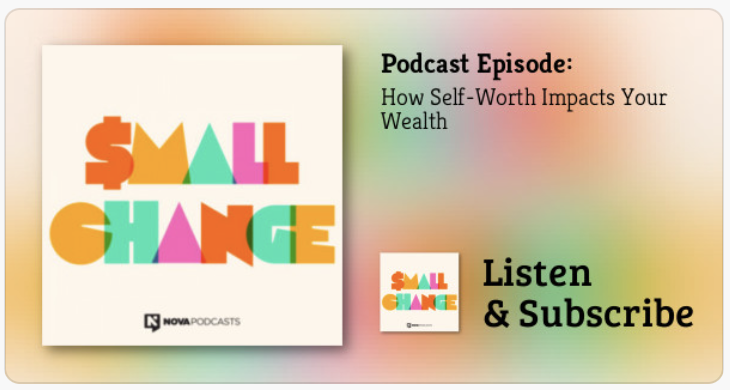ACT’s Professional Advantage: Save $70,000+ in Australia’s Most Stable Market
The Australian Capital Territory offers first home buyers a unique combination of Australia's most stable employment market and strategic...
One of the main ways spending can get out of hand at this time of year is when you purchase using buy-now-pay-later (BPNL). Just like any form of credit BPNL can be extremely useful if used carefully, but it’s important that you don’t overspend as the fees for overdue payments can really add up.
The attraction of BPNL is understandable – the idea of shopping now, using the product immediately and paying later – interest-free – is pretty compelling.
The rise in the uptake of BPNL was heightened during the COVID lockdowns, with Australians more than doubling their spending on this form of credit, with the total spend last financial year estimated at a whopping $11.9 billion.i
Afterpay is the biggest player with a market share of over 40 per cent.ii Other providers include Zipco and Humm Group which account for a little over 30 per cent between them, as well as a plethora of smaller providers like Brighte, Klarna, LatitudePay, Openpay and Payright.ii
BPNL is extremely easy to sign up for and if used carefully, it can help with budgeting as it forces consumers to spread payments over a specified period. If the purchase prices are paid back in the required period almost all providers don’t charge any interest or other account-based fees.
The challenge in using BPNL is to keep your spending in check and ensure that you can manage the repayments to avoid additional charges. The process of BPNL depends on the fact that many users don’t manage to meet their commitments, providing revenue to the platform and the numbers back this up – showing that 21 per cent of BNPL users had missed a payment in the prior 12 months.iii
Most providers, including Afterpay, do not conduct credit checks and require no proof of income before extending credit. However, they reserve the right to perform credit checks and report negative activity on your account such as late or missed payments, which could be detrimental to your credit score. However, meeting your BNPL commitments does not have any positive impact on your credit score.
The ease of signing up means that you might be taking on more debt than you can afford to service – debt that only increases with each late payment so it’s important not to find yourself in that situation.
According to Afterpay, around 90 per cent of its users pay for their purchases using a debit card rather than a credit card.iv This is a good idea, because if you have your account linked to a credit card and start incurring fees from overdue payments, your debt could snowball.
It’s also a clever idea to set reminders of when each payment is due to avoid accidental charges and to contact your provider if you are having trouble meeting repayments.
The key to managing and getting the best out of BPNL is controlling your spending, but however you pay for your purchases, it’s still a good idea to stay on top of your festive spending to avoid starting the New Year with a debt hangover.
That can be easier said than done at this time of year, however. One way to manage your spending and avoid those impulse purchases that can create a hole in your finances, is to come up with a list of what you intend to buy and a budget for your purchases – and stick to it. Starting early and taking advantage of sales can also help and avoids the last-minute rush to the shops and the expensive panic buying.
Finally, keep your eye on the prize – whether you are saving for that holiday, putting it away to buy your first home or paying down a mortgage, think about the importance of your goal and that will help you avoid splurging on all the spending temptations that are around at this time of year.
i https://www.abc.net.au/news/2022-06-29/australians-double-spending-through-buy-now-pay-later-services/101191090
ii https://www.spglobal.com/marketintelligence/en/news-insights/latest-news-headlines/next-in-australia-s-buy-now-pay-later-frenzy-consolidation-69369711
iii https://www.mortgagebusiness.com.au/finance-products/15140-1-in-5-prioritise-buy-now-pay-later-over-mortgage-repayments
iv https://mozo.com.au/fintech/love-afterpay-here-are-the-traps-you-should-know-about
Home loan pre-approval is when a lender states in writing how much they are likely to let you borrow. This allows real estate agents and sellers to take your purchase offer seriously. It means the lender has reviewed most of your documentation and is likely to approve your home loan application faster. It also gives you a very realistic maximum price point when researching properties.
Pre-approval time frames usually vary from three to six months. While you may be able to negotiate an extension, in the current volatile market it’s actually in your favour to regularly check that your pre-approval maximum loan amount is still valid.
It’s important to understand that pre-approval isn’t a guarantee. Lenders can still refuse your loan application. Common reasons for this could include the property not meeting their loan requirements – it could be a low valuation or it’s in a development that’s considered high risk. It could also be because you haven’t satisfied other conditions like providing additional documentation if required, or your financial situation has changed due to pregnancy, redundancy or starting a new job (this could mean waiting six months).
Interest rate rises may also affect how much lenders decide you can afford to borrow. First homebuyer grants may change and differ in each state, so you will need to keep an eye on these too.
Application requirements may differ between lenders and depending on your particular circumstances, will determine what they require. So, it’s important to review your information so we can match you with the best potential lenders and understand what documents you might need.
Most lenders will want to see proof of:
The sooner this is submitted the sooner your pre-approval is organised to start your property search.
Once you apply for a loan and have found a property you would like to buy, it will remain ‘conditional’ while the lender checks additional documentation and waits for the valuation and completed sale contract to be submitted. Your loan only becomes ‘unconditional’ (guaranteed to go through) when the lender formally approves the loan. While pre-approvals don’t register on your credit score, being refused a specific loan does, so it’s important that you regularly check in with us about any changes lenders may make before putting in an offer on a property.
If you are self-employed or a company, pre-approval can be more complex. Most lenders ask for at least two years’ worth of tax returns, financial and BAS statements. Some may consider you with one year of financial documentation, depending on your financial history and accountant’s statement. While most lenders will consider home loans for companies and family trusts, the loan documents can be more complicated. This means you may need more time to organise your paperwork and look at your loan options.
And with your pre-approval ready, you can feel confident when putting in your offer. Let’s have a chat about your situation sooner rather than later to get your pre-approval underway and get you into your new home in 2023.

Recently, I was on a podcast with Small Change. We had a chat about my thoughts on what makes people good with money and you can improve too.

Stay up to date with the latest developments in the property market over the past month.
The Federal Reserve Bank has announced a rise to the official cash rate, increasing it by 25 basis points from 2.60% to 2.85% in response to continued inflationary pressures.
Our video also takes you through an overview of the state of the property market, including a breakdown across all capital cities of the changes in dwelling values over the past month, as well as over a period of 12 months.
Click the video below to view our November update.
With interest rates are on the rise, contact us today to get a better understanding of how market changes will impact your next property purchase.
Investors Choice Mortgages is a trust-based company. We are committed to working with you on financial solutions that will assist you reach your goals. Australian Credit Licence 391985. Make an Appointment: www.investorschoice.com.au/bookacall
If you are on top of all your other numbers but not sure what your credit score is, you are not alone – approximately 80% of credit active Australians don’t know their credit score.i
It is an important number to be aware of – particularly if you have been through a period where you may have struggled to pay bills or repayments on time.
Your credit score is a number between zero and either 1000 or 1200, depending on the credit reporting body. Lenders use this figure as one of the factors that help them decide whether to give you credit or a loan, how much to lend to you, and at which rate of interest – on the basis that lenders want to lend to and offer more attractive deals to those they consider will be less likely to default on the loan. It’s all about using the variables that make up the credit score to weigh up risk. The higher your score, the more likely it is that you’ll get approved – and get a good deal.
Your credit score is calculated using the financial and personal information available in your credit report. An algorithm crunches the variables to determine your final score – looking at your overall debt and how you manage it, the number of loan applications you have made, your credit cards and current credit limit as well as accounts you may have opened or closed.
Credit reports are required to also show details of any financial hardship arrangements that have been put in place like loan deferrals and reduced payments. These used to show the account holder as being in arrears with payments and had a negative impact on your credit report but now, as long as you meet the requirements of any financial hardship arrangements you may have in place, it won’t be detrimental to your score.
You can request your credit report from Equifax, Experian and Illion. You can get a free report every 12 months, if you have been refused credit within the past 90 days, or if your personal information has been updated.
If your credit report shows scores out of 1,200 then as a rule of thumb a score above 853 is excellent while above 661 is good.
If your credit report shows scores out of 1,000, above 690 is excellent and above 540 is good.
If that magic number is looking a little low, there are steps you can take to improve it. To start with it’s worth checking your credit report to ensure there are no errors and reporting any inaccuracies to the reporting agency in question, along with any supporting documentation.
Other things you can do to get that important score a little higher include:
Before you can look at making improvements, the first course of action of course is to request your credit report so you can keep an eye on that magic number.
If you’d like to talk to us about getting in the best possible position to secure the best deal, please give us a call.
The Australian Capital Territory offers first home buyers a unique combination of Australia's most stable employment market and strategic...
The Northern Territory offers Australian first home buyers the most generous grant support in the nation, with the HomeGrown Territory...